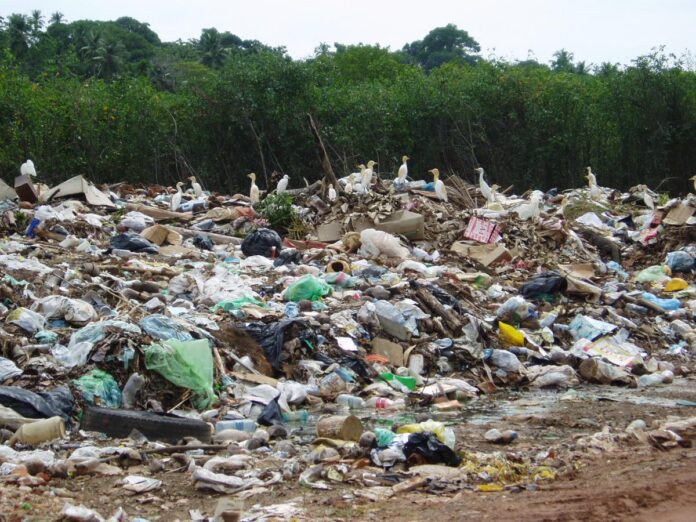By: Staff Writer
Colombo (LNW): Some 938 metric tons of plastic are generated in Sri Lanka every day, the Sectoral Oversight Committee on Environment, Natural Resources and Sustainable Development revealed recently
An estimated 1.59 million tonnes of plastic waste is mismanaged in Sri Lanka, the United Nations Development Programme (UNDP) in Sri Lanka said.
Sri Lanka imports over 500,000 MT of virgin plastic annually, straining the country’s waste management systems.
An estimated 1.59 million tonnes of plastic waste are mismanaged. About half of this amount ends up in canals, rivers, and eventually the ocean, endangering marine ecosystems.
With an average 0.4-1 kg daily per capita waste generation, Sri Lanka produces 10,786 tonnes of waste per day.
According to the Waste Management Division of the Central Environmental Authority, only about half of that gets collected as municipal waste.
Overall, 85% of waste generated is estimated to be disposed inappropriately, mainly through indiscriminate open dumping and burning, giving rise to health and environmental impacts.
The Sectoral Oversight Committee on Environment, Natural Resources and Sustainable Development revealed recently that only 32 percent of the generated amount is collected and only 4 percent of the collected plastic is mechanically recycled.
The officials pointed out that even if the rest is collected, it is being disposed of informally in the environment.
It was also revealed that industrialists have been allowed to import secondary plastic without any regulations and therefore, the Sectoral Oversight Committee instructed the Central Environment Authority to issue licenses only according to the needs of the industry in the future.
The officials revealed that Sri Lanka annually imports 4 lakh metric tons of plastic raw materials and 20,000 metric tons of waste plastic is also allowed to be imported.
Although 20,000 metric tons of waste plastic was approved to be imported last year, it was revealed that only 5,179 metric tons of waste plastic was imported for the Sri Lankan industries.
Therefore, the chairman of the committee advised the authorities to consider the need of the industry and give permission accordingly and to create a system for collecting the plastic brought in within a specific period of 5 years.
Officials told the committee that many people are not interested in collecting plastic for recycling due to the high cost.
However, the chairman mentioned that this amount can be increased by increasing the incentives for plastic collection. Moreover, he also emphasized the need to establish special centers in all parts of the island for plastic collection.

